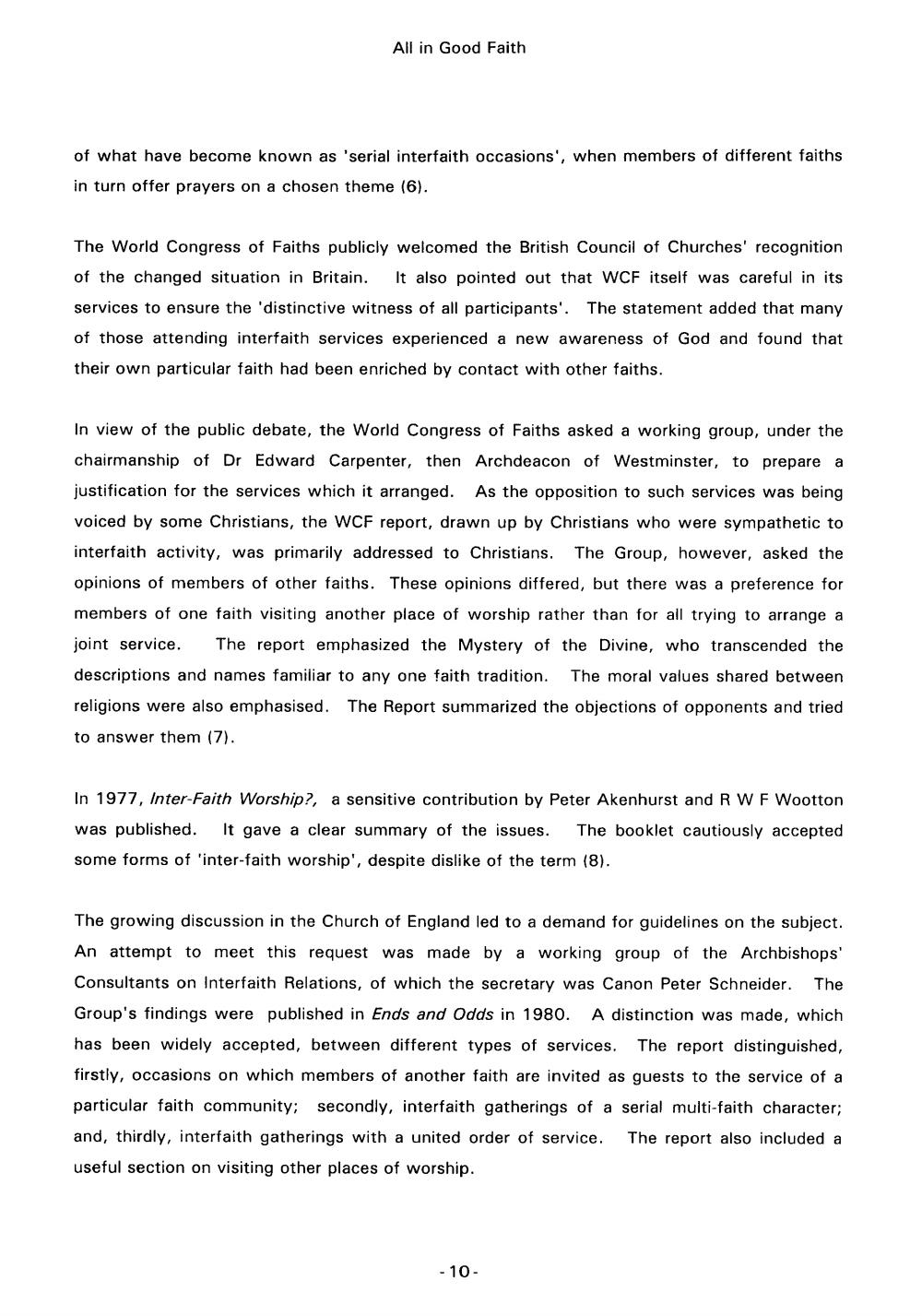________________
All in Good Faith
of what have become known as 'serial interfaith occasions', when members of different faiths in turn offer prayers on a chosen theme (6).
The World Congress of Faiths publicly welcomed the British Council of Churches' recognition of the changed situation in Britain. It also pointed out that WCF itself was careful in its services to ensure the 'distinctive witness of all participants'. The statement added that many of those attending interfaith services experienced a new awareness of God and found that their own particular faith had been enriched by contact with other faiths.
In view of the public debate, the World Congress of Faiths asked a working group, under the chairmanship of Dr Edward Carpenter, then Archdeacon of Westminster, to prepare a justification for the services which it arranged. As the opposition to such services was being voiced by some Christians, the WCF report, drawn up by Christians who were sympathetic to interfaith activity, was primarily addressed to Christians. The Group, however, asked the opinions of members of other faiths. These opinions differed, but there was a preference for members of one faith visiting another place of worship rather than for all trying to arrange a joint service. The report emphasized the Mystery of the Divine, who transcended the descriptions and names familiar to any one faith tradition. The moral values shared between religions were also emphasised. The Report summarized the objections of opponents and tried to answer them (7).
In 1977, Inter-Faith Worship?, a sensitive contribution by Peter Akenhurst and R WF Wootton was published. It gave a clear summary of the issues. The booklet cautiously accepted some forms of 'inter-faith worship', despite dislike of the term (8).
The growing discussion in the Church of England led to a demand for guidelines on the subject. An attempt to meet this request was made by a working group of the Archbishops' Consultants on Interfaith Relations, of which the secretary was Canon Peter Schneider. The Group's findings were published in Ends and Odds in 1980. A distinction was made, which has been widely accepted, between different types of services. The report distinguished, firstly, occasions on which members of another faith are invited as guests to the service of a particular faith community; secondly, interfaith gatherings of a serial multi-faith character; and, thirdly, interfaith gatherings with a united order of service. The report also included a
useful section on visiting other places of worship.
-10




